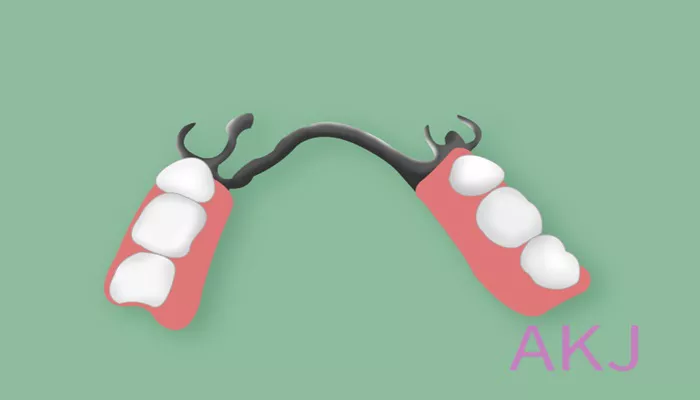When it comes to replacing missing teeth, dentures are a common solution. Patients often face a choice between plastic dentures and metal dentures. Each type has its advantages and disadvantages. This article will explore the differences between plastic and metal dentures, helping you make an informed decision based on your needs.
Understanding Dentures
What Are Dentures?
Dentures are removable appliances designed to replace missing teeth. They restore function, improve appearance, and enhance oral health. Dentures can be full or partial, depending on the number of teeth that need replacement.
Full Dentures: These are used when all teeth are missing in the upper or lower jaw.
Partial Dentures: These are used when some natural teeth remain. They fill the gaps left by missing teeth.
Types of Dentures
Plastic Dentures
Plastic dentures, often made from acrylic resin, are lightweight and versatile. They can be molded to fit the shape of the gums and are usually less expensive than metal dentures.
Metal Dentures
Metal dentures typically use a combination of metal frameworks and acrylic components. The metal framework adds strength and stability, making these dentures more durable. They often use materials like cobalt-chromium or gold.
Advantages of Plastic Dentures
1. Cost-Effective
Plastic dentures are generally more affordable than metal dentures. This makes them a popular choice for patients on a budget.
2. Lightweight
Plastic dentures are lighter than metal alternatives. This can make them more comfortable for some wearers, especially during the adjustment period.
3. Aesthetic Appeal
Plastic dentures can be designed to closely resemble natural teeth. The acrylic material can be color-matched to the surrounding gums, providing a natural appearance.
4. Easy to Adjust
Plastic dentures can be easily adjusted by the dentist. If changes are needed due to weight loss or gum shrinkage, adjustments can be made without significant difficulty.
Disadvantages of Plastic Dentures
1. Durability
While plastic dentures are functional, they are not as durable as metal dentures. They may wear down over time and require replacement sooner.
2. Staining
Plastic dentures can stain more easily than metal dentures. Foods, drinks, and tobacco can lead to discoloration, affecting their appearance.
3. Less Stability
Plastic dentures may not provide the same level of stability as metal dentures. They can shift or become loose, especially if the gums change shape over time.
Advantages of Metal Dentures
1. Durability
Metal dentures are known for their strength and durability. The metal framework provides a solid base, allowing them to withstand daily wear and tear.
2. Stability
Metal dentures tend to fit more securely in the mouth. The metal framework can be designed to attach to remaining natural teeth, providing additional stability.
3. Less Staining
Metal dentures are less prone to staining compared to plastic dentures. This means they may maintain their appearance longer over time.
4. Long-Term Solution
Due to their durability and stability, metal dentures can be a better long-term solution for many patients. They may require fewer replacements than plastic options.
Disadvantages of Metal Dentures
1. Cost
Metal dentures are typically more expensive than plastic dentures. The higher cost can be a barrier for some patients.
2. Heavier Weight
Metal dentures are generally heavier than plastic dentures. Some patients may find them less comfortable, especially during the initial adjustment period.
3. Allergies
Some individuals may have allergies to certain metals used in dentures, such as nickel. It is essential to discuss any allergies with your dentist.
4. Aesthetic Concerns
While metal dentures can be designed to look natural, the metal framework may be visible, which could be a concern for some patients.
Factors to Consider When Choosing Dentures
1. Budget
Consider your budget when choosing between plastic and metal dentures. If cost is a significant factor, plastic dentures may be the better option.
2. Comfort
Comfort is crucial when wearing dentures. Some patients prefer the lightweight nature of plastic dentures, while others appreciate the stability of metal dentures.
3. Lifestyle
Your lifestyle can influence your choice. If you lead an active life or have specific dietary needs, metal dentures may provide the durability and stability you require.
4. Aesthetic Preferences
Consider how important aesthetics are to you. If having a natural appearance is a priority, both types of dentures can be designed to look good, but plastic dentures may offer a closer match to natural gums.
5. Oral Health
Your overall oral health should also be considered. If you have remaining natural teeth, metal dentures may provide better support and stability.
Consulting with Your Dentist
Before making a decision, it is essential to consult with your dentist. They can evaluate your oral health, discuss your preferences, and recommend the best option for your specific needs.
Questions to Ask Your Dentist
What are the pros and cons of each type of denture for my situation?
How long can I expect each type of denture to last?
What adjustments might be necessary after getting my dentures?
Are there any specific care instructions for maintaining my dentures?
Conclusion
Choosing between plastic and metal dentures is a significant decision that depends on various factors, including budget, comfort, lifestyle, and aesthetic preferences. Plastic dentures are a cost-effective, lightweight option that can provide a natural appearance but may not be as durable. Metal dentures offer strength, stability, and longevity but come at a higher cost and weight.
Ultimately, the best choice will vary from person to person. Consulting with your dentist is crucial to ensure you select the right type of denture for your needs. With the right care and maintenance, both plastic and metal dentures can effectively restore your smile and improve your quality of life.
Related topics:

